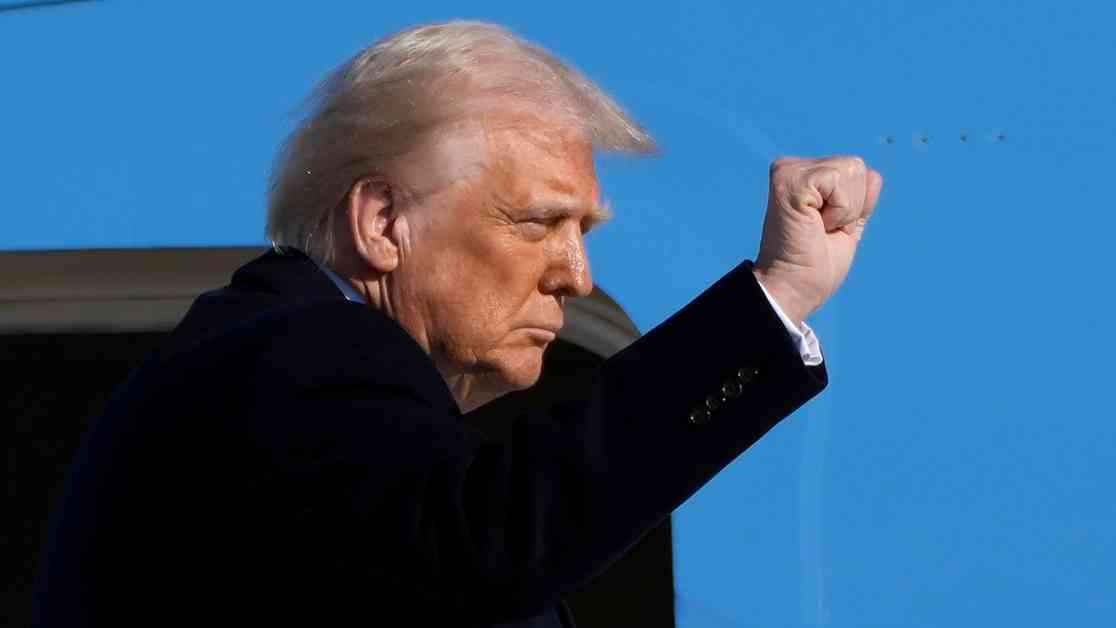President Donald Trump’s recent social media post has sparked controversy and criticism from Democrats and critics alike. In a post shared on X and TruthSocial, Trump declared, “He who saves his country does not violate any law,” prompting accusations of dictatorial behavior and claims of placing himself above the law. The White House remained silent on the matter, choosing to share Trump’s post on its official social media accounts, featuring his mug shot from the Fulton County, Georgia election interference case.
The quote, often attributed to Napoleon Bonaparte, though its origins are disputed, has stirred debate and raised questions about Trump’s actions since taking office. With numerous legal challenges and accusations of violating the U.S. Constitution, including freezing foreign aid and Elon Musk’s role in the Department of Government Efficiency, Trump’s presidency has been mired in controversy.
Backlash and Criticism
The post on Saturday led to swift backlash from Democratic leaders, who condemned Trump’s perceived justification for potentially unlawful and ethically questionable actions. Senator Adam Schiff of California took to X to express his concerns, stating, “Spoken like a true dictator.” Similarly, New York Representative Ritchie Torres criticized Trump for believing he could act with impunity under the guise of ‘saving the country.’
In a televised interview on ABC News’ “This Week,” former RNC Chair and Trump’s first chief of staff, Reince Priebus, characterized the president’s post as “catnip for the media.” Priebus downplayed the significance of Trump’s words, suggesting that it was merely a form of entertainment and distraction for the president. According to Priebus, Trump enjoys provoking reactions and creating chaos with his provocative statements.
Legal Ramifications and Public Perception
The broader implications of Trump’s declaration that he is above the law have raised concerns among legal experts and the American public. As the first U.S. president to be convicted of a crime, Trump’s actions have been closely scrutinized for their potential impact on the rule of law and democratic norms. A judge’s decision to grant him an unconditional discharge in a criminal case has solidified his status as a felon, despite avoiding further punishment.
The ongoing legal battles and controversies surrounding Trump’s presidency have heightened tensions and divisions within the political landscape. Critics argue that his rhetoric and actions undermine the principles of the U.S. Constitution and the foundations of a democratic society. By claiming immunity from the law under the guise of ‘saving the country,’ Trump has reignited debates about the limits of presidential power and the necessity of accountability in government.
In conclusion, President Donald Trump’s recent assertion of being above the law has reignited debates about presidential power, legality, and the rule of law in American democracy. His provocative statement has drawn criticism from political opponents and legal experts, who warn of the dangers of unchecked executive authority and the erosion of democratic norms. As the nation grapples with the implications of Trump’s actions, the debate over the balance between national security and individual liberties continues to shape the future of American governance.


